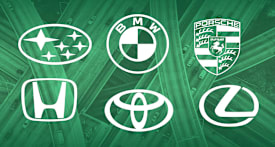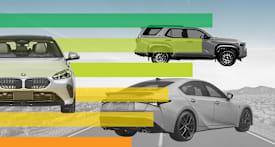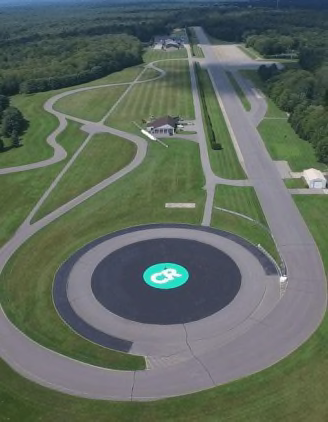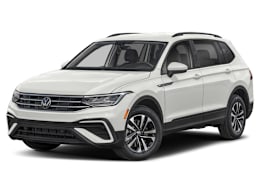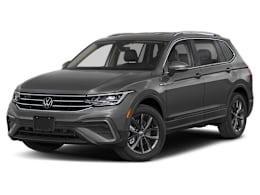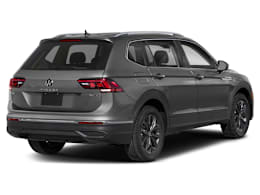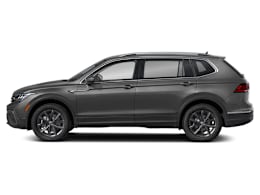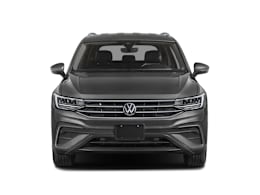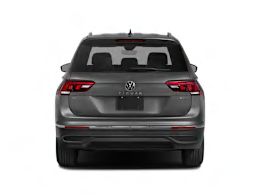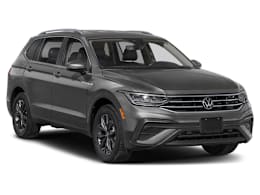Once among the smallest compact SUVs, the current Volkswagen Tiguan has grown into one of the biggest in the category. It offers driver and passengers plenty of interior space and good outward visibility. It has lost a bit of the youthful demeanor of its predecessor with this newfound space, but it remains one of the better handling small SUVs. At the same time, VW was able to boost the Tiguan's fuel economy to 25 mpg overall on regular fuel, a strong showing for the class, especially considering its size. (The previous Tiguan required premium.)
At 185 inches long, the new Tiguan is a whopping 11 inches longer than the previous generation. That's also two inches longer than the Chevrolet Equinox and four inches longer than the Honda CR-V. The added length not only allows for an immense backseat and generous cargo area, but for an optional third-row seat as well (which comes standard on front-wheel-drive versions).
On the road, the new Tiguan is easygoing and user-friendly. The 184-horsepower, 2.0-liter turbo four-cylinder engine is responsive and offers ample power at modest speeds, but don't expect any breathtaking power. In fact, the Tiguan is one of the slowest in the segment with 0-60 mph acceleration taking more than 10 seconds. The eight-speed automatic shifts smoothly in most situations, but occasionally it takes a moment to react in stop-and-go traffic.
In the handling department, the Tiguan is enjoyable to drive and secure when it's pushed, but it's not quite as agile as the Ford Escape and Mazda CX-5.
The Tiguan absorbs pavement irregularities nicely (barring the odd thump from the suspension), keeping occupants mostly unruffled when driven over rough roads. A coarse engine growl when revved is the only low mark when it comes to cabin noise.
The interior is where the new Tiguan really shines. The seats are comfortable and supportive, even though it only has two-way power lumbar adjustment. The second row is very roomy, but the available third-row seat is cramped and best suited as a kid's time-out zone.
Controls are straightforward and easy to use, including the infotainment touch screen, which is uncluttered and responds quickly. Interior quality is half a notch above most competitors. Storage bins and other nice details abound, such as bottle holders built into all doors, a dedicated place under the cargo floor to store the retractable cargo cover, and the ability to lower sections of the second row using levers in the cargo hold.
For tech lovers, the Tiguan packs in all the latest in smartphone connectivity, including standard Android Auto and Apple CarPlay compatibility.
Volkswagen has changed the Tiguan's price structure so that buyers get more for their money. The mainstream SE now comes with a power driver's seat and automatic climate control for just under $30,000 -- the sweet spot for the segment -- instead of being forced to spring for the top trim (at almost $37,000) to get those features.
Even though the new Tiguan has ditched some of its fun-to-drive flair, it checks off the right boxes as a roomy, easy-to-live-with, family-friendly vehicle.
Forward collision warning and automatic emergency braking with pedestrian detection, are standard. For 2024, lane departure warning, lane keeping assistance, lane centering assistance and adaptive cruise control are standard.
